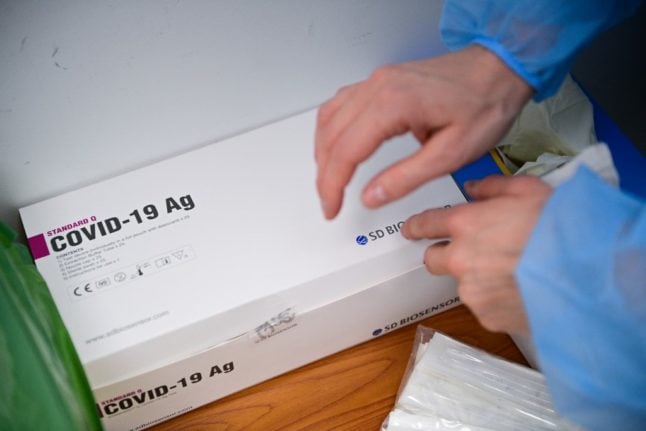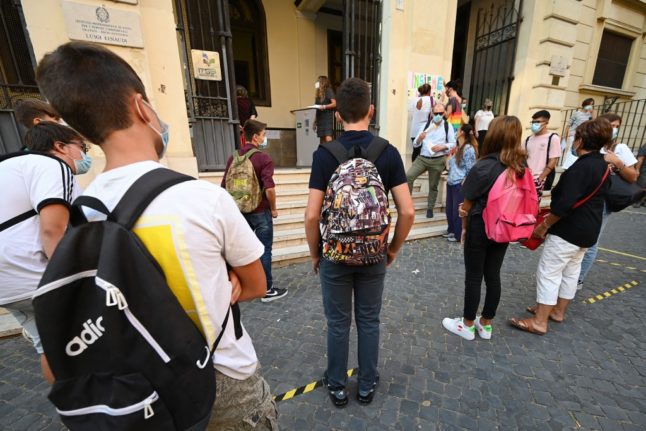The Italian health ministry signed off on a new set of Covid isolation rules on Wednesday after months of speculation about whether the isolation period in place all summer could be scrapped.
Under the update, anyone who tests positive for coronavirus and shows symptoms must immediately self-isolate for five days instead of the previous seven, and must test negative – via either a molecular (PCR) or rapid antigen test – at the end of that period, as well as being asymptomatic for two days.
READ ALSO: What are the Covid-19 rules in Italy now?
Should the patient continue to test positive, they must remain in isolation until they get a negative test result. The maximum length of the isolation period was however cut to 14 days, down from 21.
Testing should be carried out at a registered pharmacy or testing centre. The results of home tests are not seen as valid for this purpose.
The isolation requirement applies to everyone including those who are fully vaccinated or recently recovered from Covid.
The changes came in a circular signed on Wednesday by the health ministry’s director of prevention, Gianni Rezza.
The circular, published on Thursday morning, said the rules had been relaxed “as a result of the cessation of the state of emergency” and based on health data analysis by Italy’s Higher Health Institute on August 24th.
The infection rate in Italy has been falling since mid-July.
The number of new infections recorded over the previous 24 hours on Wednesday was 21,817, with a test positivity rate of 13 percent.
Politicians from several parties criticised the decision to keep isolation rules in place, claiming this could affect voter turnout at elections on September 25th.
Italy’s outgoing health minister, Roberto Speranza, said this wasn’t an issue: “Just as with the last elections, there is the option of voting from home, as is done for the infirm,” he told news agency Ansa.
Italy does not currently require visitors from any country to test negative on arrival, as long as they are fully boosted, were recently vaccinated, or have recently recovered from Covid.
Read more about getting tested while in Italy in a separate article here.
For more information about Italy’s Covid health regulations, see the health ministry’s website.



 Please whitelist us to continue reading.
Please whitelist us to continue reading.
Member comments